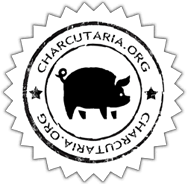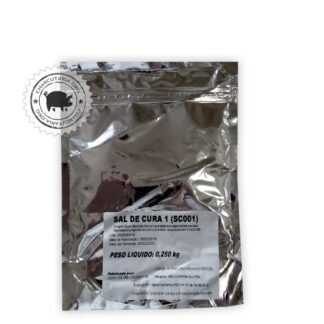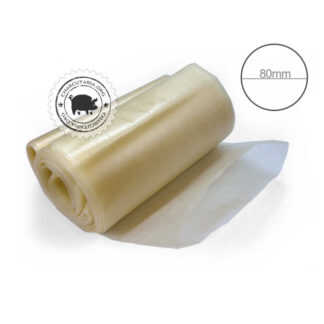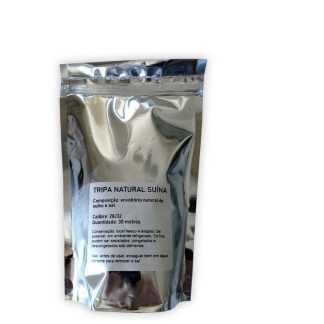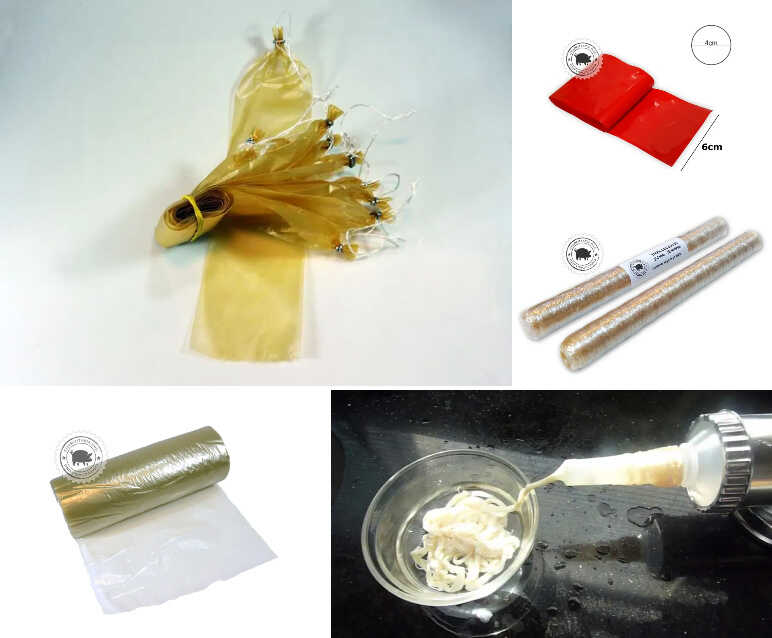
Guia completo sobre tripas e envoltórios para embutidos. Aprenda sobre os tipos, vantagens, desvantagens e dicas para escolher o melhor para sua produção.
Quando o assunto é a fabricação de embutidos, como linguiças, salsichas e salames, a escolha da tripa ou do envoltório é tão crucial quanto a seleção dos ingredientes internos. Afinal, é o envoltório que dá forma, protege e influencia diretamente na qualidade e conservação do produto final. Neste post, vamos mergulhar no universo das tripas e envoltórios, explorando suas variações, usos e melhores práticas, com base no capítulo “Tripas e outros Envoltórios” do livro “Embutidos, Frios e Defumados” da Embrapa.
Tipos de Tripas e Envoltórios:
1. Tripas Naturais:
As tripas naturais são as mais tradicionais e ainda amplamente utilizadas na produção de embutidos. Elas são provenientes do trato digestivo de animais, principalmente suínos, ovinos e bovinos.
- Tripa Suína: Versátil e resistente, é ideal para linguiças frescas, curadas e defumadas. Proporciona uma textura clássica e um sabor característico.
- Tripa Ovina: De calibre menor, é perfeita para salsichas finas e delicadas, como a salsicha de Frankfurt. Oferece uma mordida suave e tenra.
- Tripa Bovina: Com maior diâmetro, é utilizada para embutidos de maior calibre, como mortadelas e salames. Confere resistência e um visual robusto.
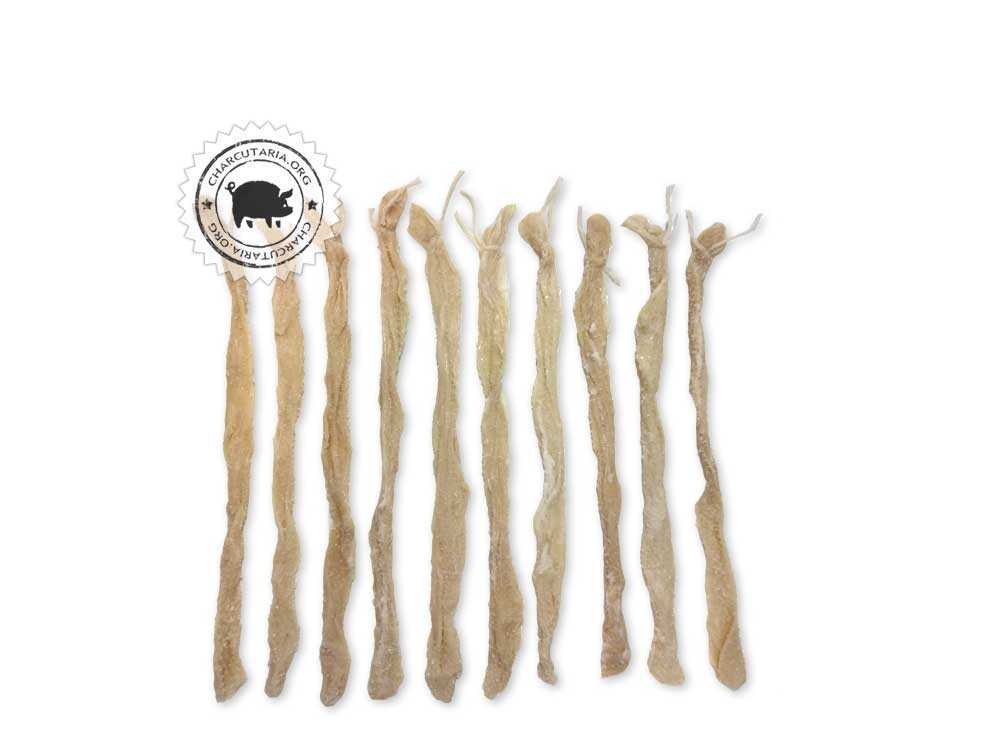
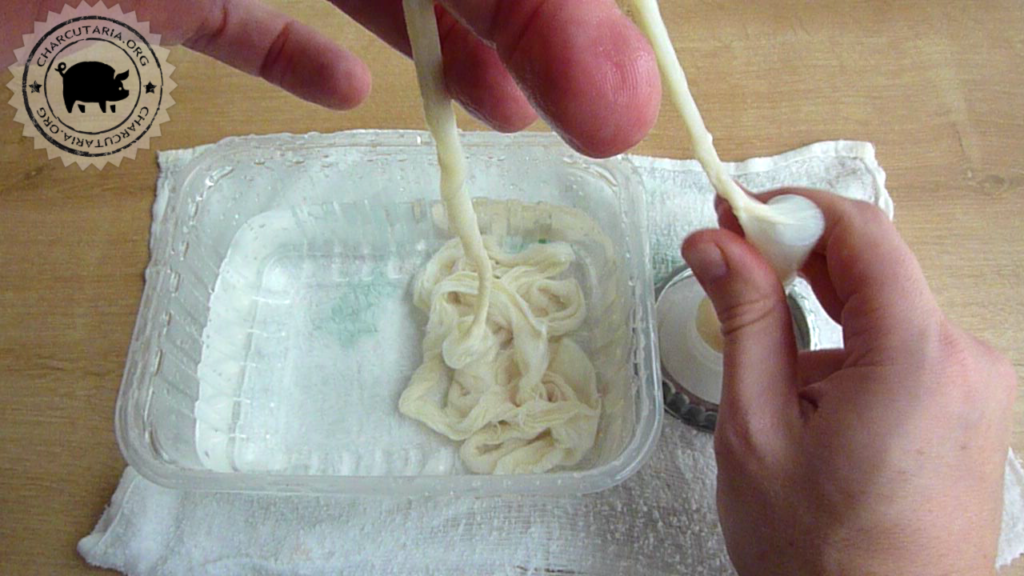
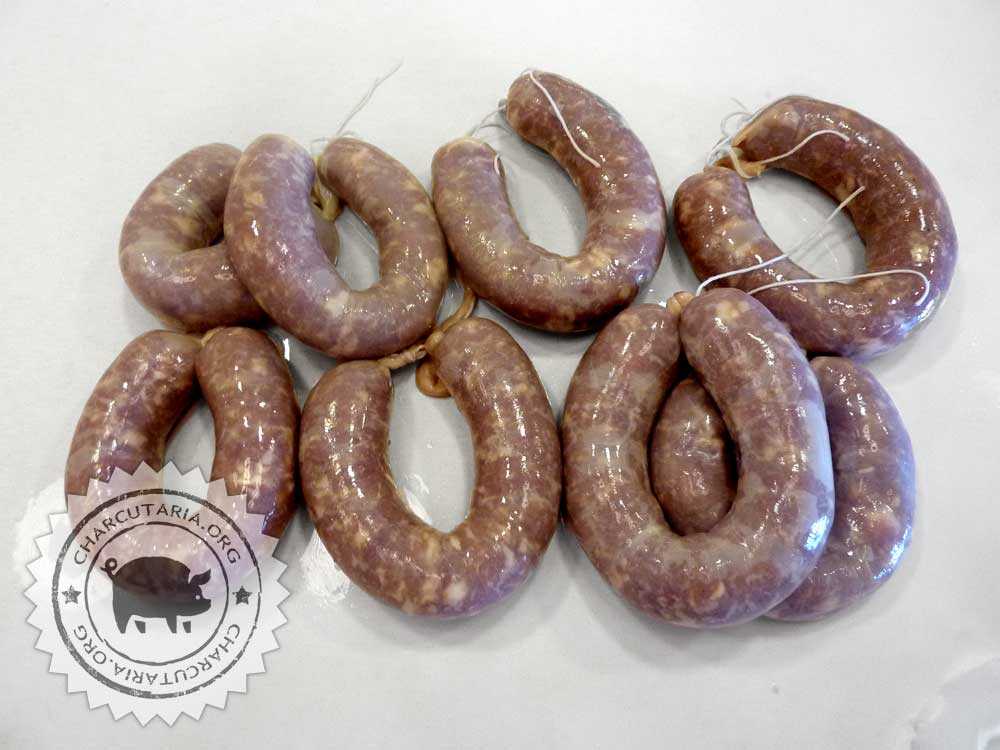
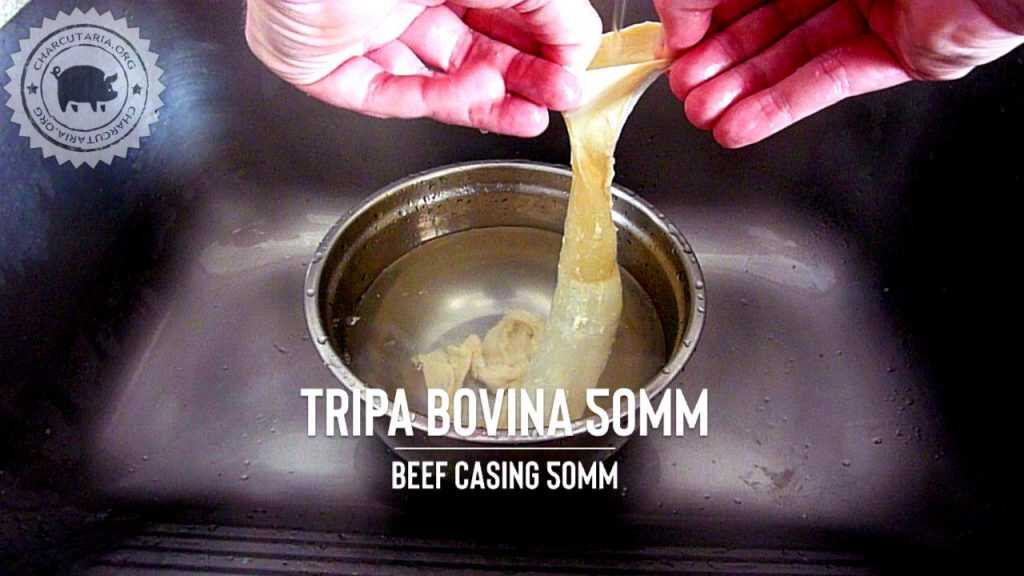

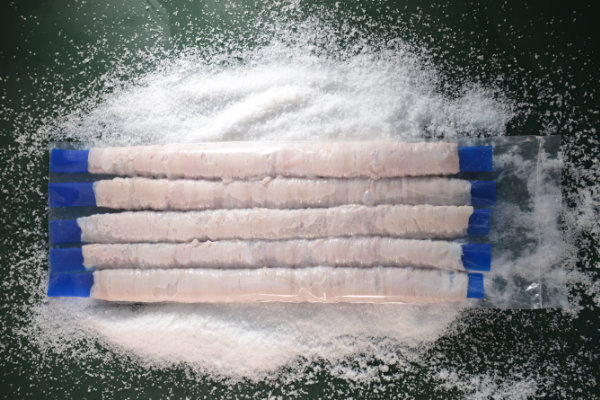
Vantagens das Tripas Naturais:
- Permeabilidade: Permitem a troca de umidade e a penetração da fumaça, essenciais para a cura e defumação.
- Sabor: Contribuem para o sabor autêntico dos embutidos.
- Textura: Oferecem uma textura única na mordida.
- Aderência: Aderem bem à massa, evitando a formação de bolhas de ar.
2. Envoltórios Artificiais:
Os envoltórios artificiais surgem como alternativas às tripas naturais, oferecendo padronização e praticidade.
- Colágeno: Feitos de proteína animal, são comestíveis e se assemelham às tripas naturais em textura e aparência. Ideais para salsichas e linguiças frescas ou defumadas.
- Celulose: Produzidos a partir de fibras vegetais, são resistentes e uniformes. Geralmente, são removidos antes do consumo. Usados em salsichões, mortadelas e alguns tipos de salames.
- Plástico: São impermeáveis e ideais para produtos cozidos ou que não necessitam de defumação. São utilizados em presuntos cozidos, salsichas tipo Viena e produtos moldados.
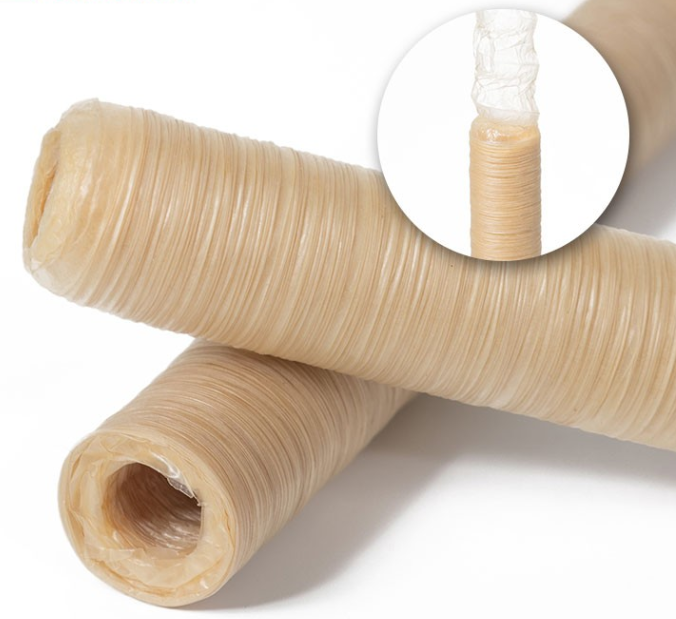
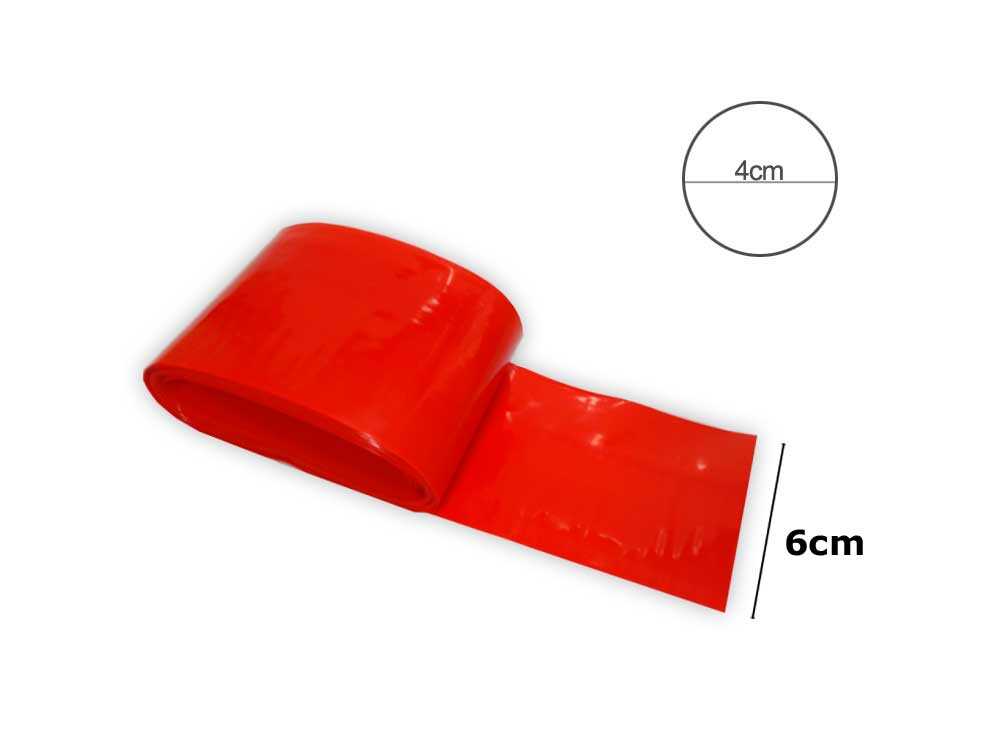
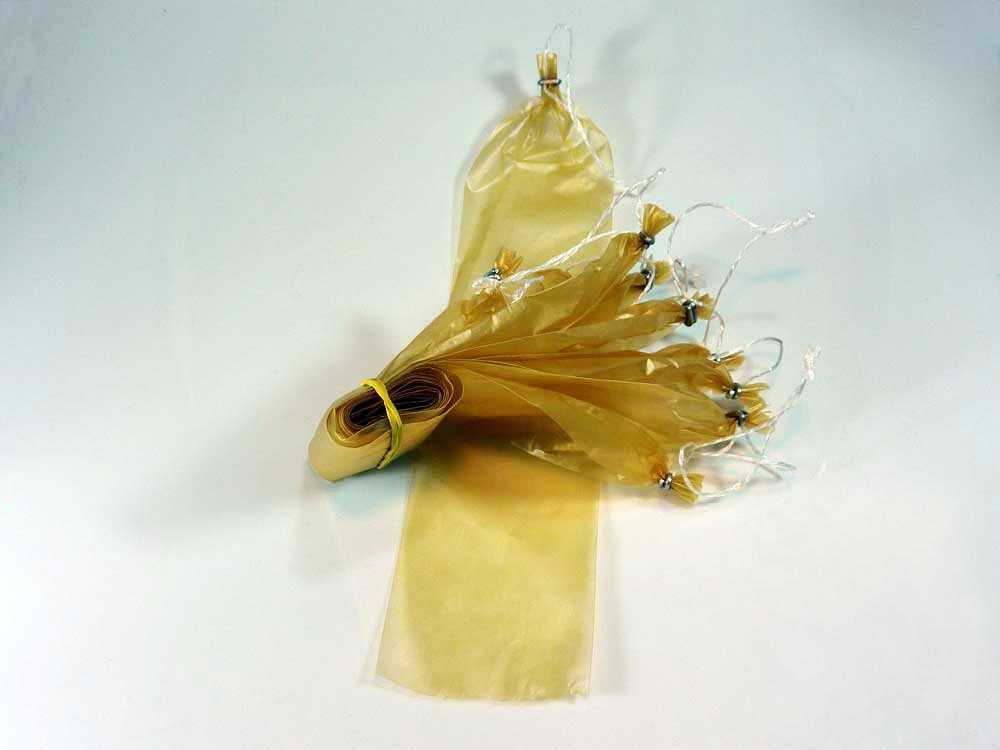
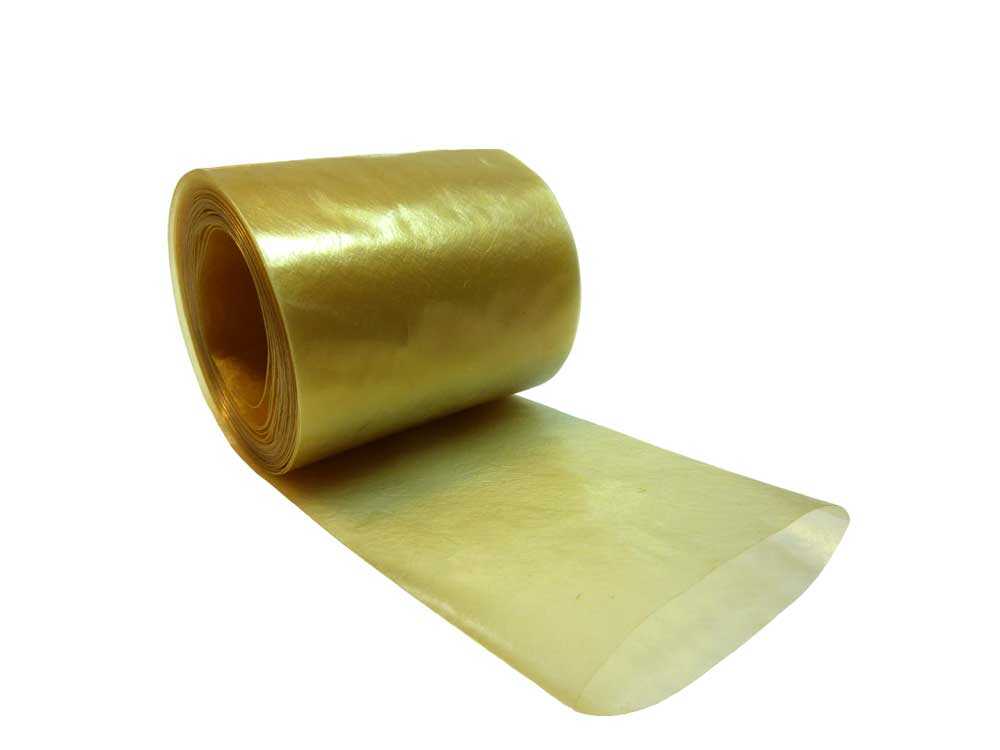
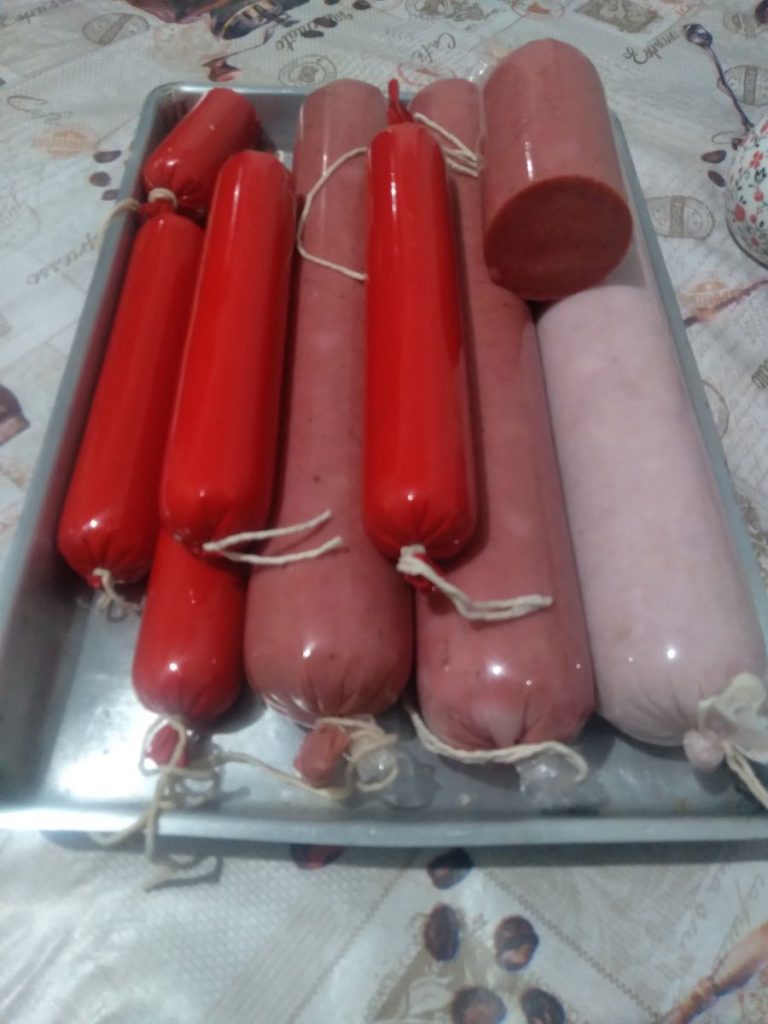
Vantagens dos Envoltórios Artificiais:
- Padronização: Calibre e comprimento uniformes, facilitando a produção em escala.
- Resistência: Menor risco de rompimento durante o processo de embutimento.
- Barreira: Alguns tipos oferecem maior barreira à umidade e ao oxigênio, prolongando a vida útil do produto.
- Custo: Podem ser mais econômicos que as tripas naturais, dependendo do tipo e da aplicação.
3. Estoquinete (Malha Elástica):
Embora não seja um envoltório propriamente dito, o estoquinete é uma malha de algodão grossa e elástica, fundamental na elaboração de produtos constituídos por grandes peças de carne ou carcaças inteiras, como presunto tender, paletas, frangos e perus defumados.
Função do Estoquinete:
- Formato: Confere um formato arredondado e uniforme ao produto.
- Sustentação: Mantém a integridade da peça durante o cozimento e a defumação.
- Permeabilidade: Permite a ação da fumaça em toda a superfície da peça.
Cuidados e Preparo:
- Tripas Naturais: Devem ser lavadas em água corrente abundante, por dentro e por fora, para remover o sal e resíduos. É importante verificar a procedência e a qualidade das tripas, adquirindo-as de fornecedores confiáveis.
- Envoltórios Artificiais: Seguir as recomendações do fabricante quanto ao uso e armazenamento. Geralmente, os envoltórios de colágeno e celulose precisam ser hidratados antes do uso.
- Estoquinete: Deve ser de boa qualidade e elasticidade para garantir a firmeza e o formato do produto.
Dicas de Ouro:
- Escolha o calibre correto: O calibre da tripa ou envoltório deve ser adequado ao tipo de embutido que você deseja produzir.
- Não encha demais: O excesso de massa pode romper a tripa ou o envoltório.
- Amarre bem as extremidades: Isso evita a perda de massa e garante o formato do embutido.
- Fure as bolhas de ar: Utilize uma agulha fina para eliminar as bolhas de ar que se formarem durante o embutimento.
Conclusão:
A escolha da tripa ou do envoltório é um passo fundamental na jornada para criar embutidos saborosos e de qualidade. Seja você um entusiasta caseiro ou um produtor experiente, compreender as características e os usos de cada tipo de envoltório fará toda a diferença no resultado final.
Tem alguma dúvida sobre tripas e envoltórios? Deixe sua pergunta nos comentários.
Qual a sua tripa ou envoltório favorito para embutidos? Compartilhe sua experiência nos comentários!
Siga nosso blog para mais dicas sobre embutidos, defumados e charcutaria artesanal!
Tripas, Envoltórios, Embutidos, Linguiça, Salsicha, Salame, Tripa Natural, Tripa Suína, Tripa Ovina, Tripa Bovina, Colágeno, Celulose, Plástico, Estoquinete, Defumação, Charcutaria, Fabricação de Embutidos.
Referência:
ROCCO, S. C. Embutidos, Frios e Defumados. Brasília: Embrapa, 1996. 94 p.
